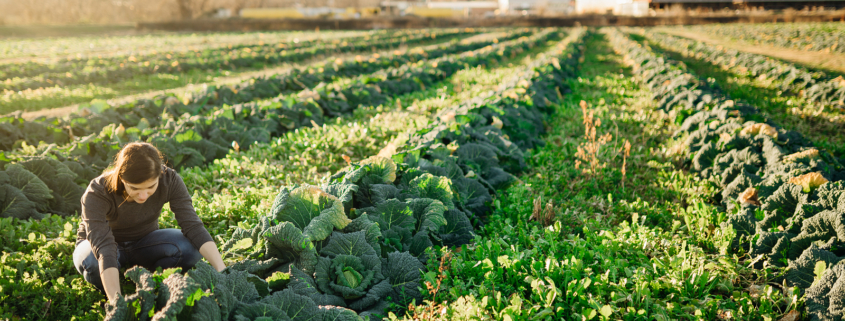Global Alliance for Organic Districts: Scaling Up Organic Agriculture
The COVID-19 pandemic has highlighted the importance of resilient local food systems that promote healthy people, environmental stewardship and a strong local economy. Lobbying governments around the world to adopt and support organic regenerative farming practices is paramount to establishing and maintaining local food systems and access to healthy food.
During these trying times, Regeneration International (RI) has remained steadfast in its efforts to spread the word about organic regenerative agriculture to local governments, municipalities, cities and regions worldwide.
Our latest endeavor includes participating in the virtual launch of the first Global Alliance for Organic Districts (GAOD), an alliance announced on World Food Day 2020 between Asian Local Governments for Organic Agriculture (ALGOA) and the International Network of Eco Regions (I.N.N.E.R.).
The goal is for the initiative to create synergy between groups working to promote organic regenerative agriculture across the globe. It’s supported by several founding member organizations including RI, IFOAM Organics International, IFOAM Organics Asia and the League of Organic Agriculture Municipalities and Cities of the Philippines (LOAMCP).
RI’s role in the alliance is to promote and highlight soil health as the most effective tool to curb climate change while providing local communities with nutrient-dense food.
GAOD and its partners also joined and have voiced their support for the 4Per1000 Initiative: Soils for Food Security and Climate, a project launched in 2015 at the United Nations Climate Change Conference in Paris, France.
The initiative provides an international framework on how to demonstrate the role of agriculture and healthy soil in addressing food security and climate change.
The project recently launched a strategic plan to use carbon-rich soil to stop climate change and end world hunger by 2050, and by 2030 the project aims to:
“. . . provide a supportive framework and action plan to conceptualize, implement, promote and follow up actions, on soil health and soil carbon, through an enhanced collaboration between stakeholders of the agriculture, forestry and other land use sectors, in line with the UN Sustainable Development Goals.”
During the virtual online summit, GAOD’s co-president Salvatore Basile expressed his gratitude and acknowledged the importance of the 4Per1000 Initiative to provide a framework on agricultural climate mitigation for local policymakers worldwide. He said:
“From this day, we will promote the potential of organic regenerative agriculture to mitigate climate and build resilient local economies to mitigate the growing environmental threats global communities are facing.”
In a video message aired at the online event, Paul Luu, an agronomist specialized in tropical agronomy and executive secretary of the 4Per1000 Initiative, thanked GAOD, ALGOA and I.N.N.E.R. for becoming members of the project.
“This is an important and strong signal to local authorities to encourage and promote carbon sequestration in soils through appropriate agriculture and forestry practices. Agroecology will remain a mere concept if no farmer or forester implement appropriate practices in their fields or forests and if local authorities do not work to create an enabling environment for such practices.”
Through the work happening on-the-ground at Via Organica, the Mexico-based sister organization of the Organic Consumers Association, RI will provide GAOD’s 4Per1000 task force groups with insights for implementing localized agriculture designed to mitigate climate change.
The project at Via Organica, based in San Miguel de Allende, provides training to local communities on how to reforest landscapes with the planting of mesquite (which has nitrogen-fixing capacities) and agave, which has tremendous power to grow in extreme dryland conditions while sequestering huge amounts of carbon with its increased biomass.
The agave then gets converted into a low-cost animal feed for local sheepherders who practice holistic grazing methods.
A recently published [LINK] video featuring RI’s Latin America Director Ercilia Sahores and Francisco Peyret, the environment director for the city San Miguel de Allende, showcases the innovative agave-mesquite model.
“We want to implement the goals of the ‘4Per1000’ Initiative, and this means taking action. This year, we are planting 2,000 hectares [of agave and mesquite] and we have 20,000 hectares that we want to convert into productive and regenerate areas,” said Pevret.
The agave planting project and the work being done at Via Organica has inspired officials in the Guanajuato government to launch their own pilot project.
In the featured video, Sahores said:
“Change happens at the local level, and that is from where we need to act and gather our forces. GAOD and the RI network can have a greater influence on public policies, bringing to evidence that the health of food and climate are one.”
RI’s participation in the ALGOA/GAOD summit contributed to a working group that includes participants from every continent on the globe to discuss the main challenges for scaling up regenerative agriculture.
The working group identifies what the challenges are, how they can be overcome and what GAOD can do to assist in that mission.
We found that many of these needs are universal, including access to land, fair compensation for farmers to maintain and regenerate ecosystems, consumer awareness, and training on regenerative agriculture practices.
Stay tuned for more updates on the global regeneration front.
Oliver Gardiner represents Regeneration International in Europe and Asia.
To keep up with news and events, sign up here for the Regeneration International newsletter.

